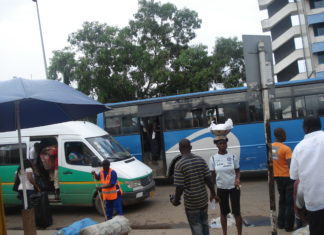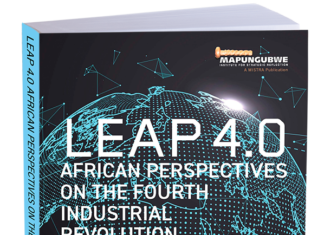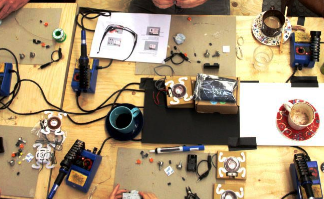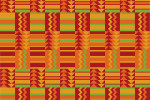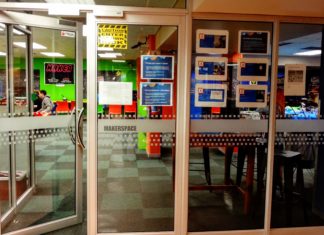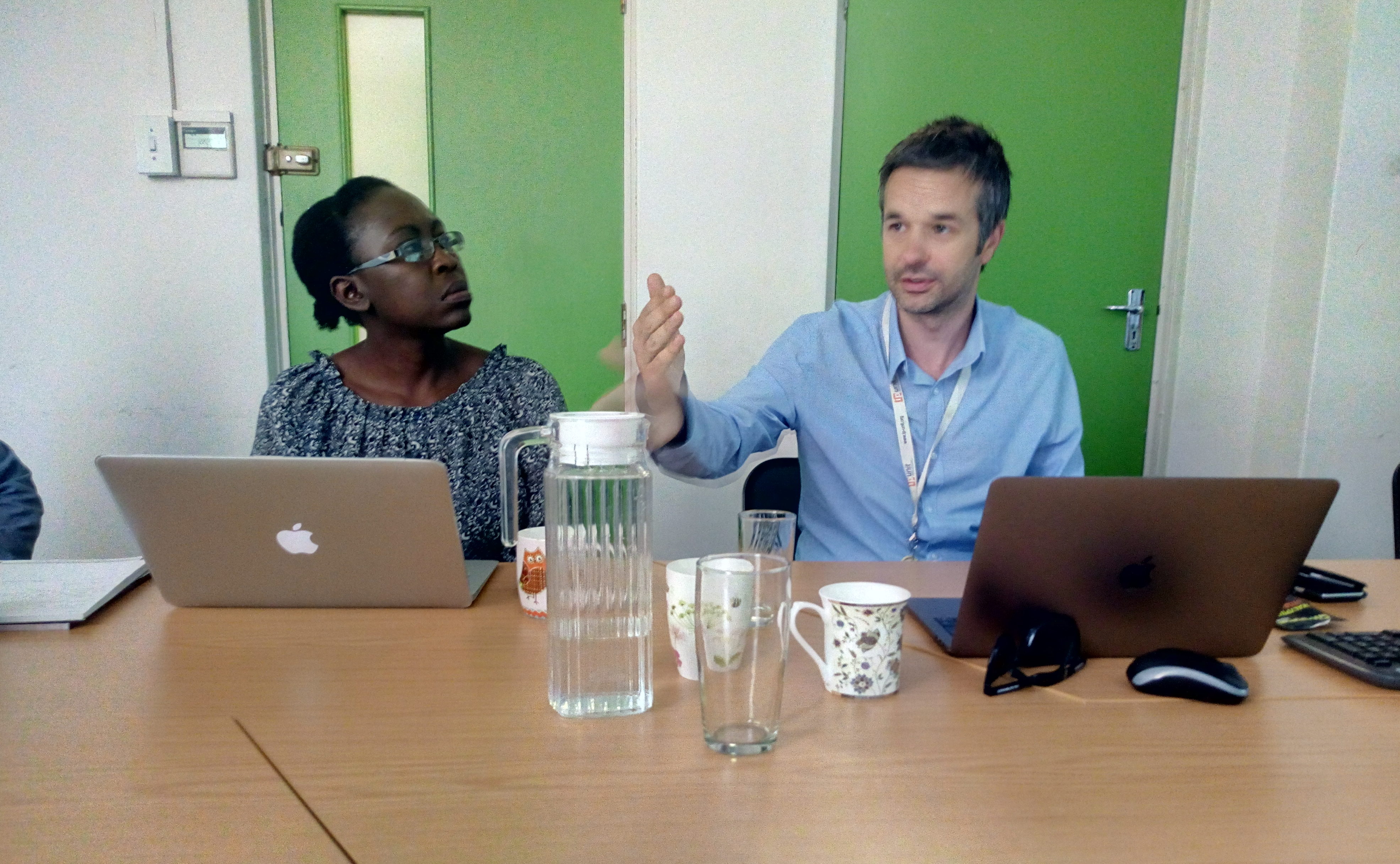Upcoming research into informal entrepreneurs
Our Open AIR researcher Dr. Erika Kraemer-Mbula is continuing her exciting research in South Africa about informal sector entrepreneurs.
Informal entrepreneurship is receiving increasing scholarly and political attention in Africa. The continent’s booming youth population calls for an unprecedented need to create income and livelihood opportunities. Besides the traditional focus on formalisation, there is a growing interest in understanding the creative processes and innovations occurring in informal enterprises. However, evidence remains scarce, and research on informal enterprises still represents a relatively new and unexplored frontier.
Leap 4.0 – African Perspectives on the Fourth Industrial Revolution
The 4IR is well established in many parts of the world, with technological advances driving profound social and economic change. However, for many developing countries, particularly countries in Africa, the 4IR may not offer the anticipated 'leap' forward.
This book seeks to identify the challenges and opportunities the 4IR presents to South Africa and the rest of the African continent, especially to workers and marginalised sectors of society.
Contributions des markers d’ici et d’ailleurs à la lutte contre la...
Par Ahou Rachel Koumi et Thomas Hervé Mboa Nkoudou
Ceci constitue la deuxième partie d’une série de trois. Pour la première partie, cliquez ici. La...
Open Call for Case Studies
Open AIR is calling for African case studies that shed light on the following two overarching research questions:
How can open collaborative innovation help businesses scale up and seize the new opportunities of a global knowledge economy?
Which knowledge governance systems will best ensure that the social and economic benefits of innovation are shared inclusively across society as a whole?
Innovation, Makerspaces, and the Future: A Lesson from the University of...
Creativity is a key ingredient in innovation, and the University of Pretoria’s (UP) makerspace screams it from the moment one arrives; the walls are brightly painted orange and green, there are several large tables surrounded by equally bright chairs, and along the back and side walls lay computers, makerbot 3D printers, and, of course, a coffee machine. Currently, UP is the only South African university with a ‘formal’ makerspace, although many, including the University of Cape Town and Rhodes University, are working to establish their own official makerspaces.
Challenging the Meaning of Innovation: Lessons from Refugee-Founded Organizations in Kampala
There is often a limited and constricted view of African innovation, especially when it comes to refugees and internally displaced persons (IDPs). While there is the common perception that refugees on the continent are resilient, innovative, and resourceful, it is only in the sense that “one man’s trash is another man’s treasure”. Too often, refugees and IDPs are perceived as persons with only needs. The reality is that refugees and IDPs are just like everyone else and bring many skills, ideas, and innovations to the global marketplace, both the marketplace of ideas and of goods.
Fablabs et le développement durable de l’Afrique
Par Thomas Hervé Mboa Nkoudou
Je suis Thomas Hervé Mboa Nkoudou, doctorant en Communication Publique à l’Université Laval (Québec, Canada). Je m’intéresse à la contribution des tiers-lieux de...
Traditional cultural expressions preservation and innovation: The Tonga Baskets of Zambia
By Charlene Musiza
The marketing of traditional cultural expressions (TCEs) – which are manifestations of traditional culture such as handicrafts, sculptures and performances – presents...
Workshop on Integrating Gender Perspectives into Research Projects: Focusing on Social...
By Desmond Oriakhogba
Recently, Open AIR participated in a workshop which focused on the integration of gender perspectives into research projects aimed at promoting social...
Maker spaces in developing countries: Sites of innovation despite simultaneous challenges
by Mohamed Hosny
In the past few years, there have been several initiatives to help entrepreneurs introduce new creative and innovative products that break from...

